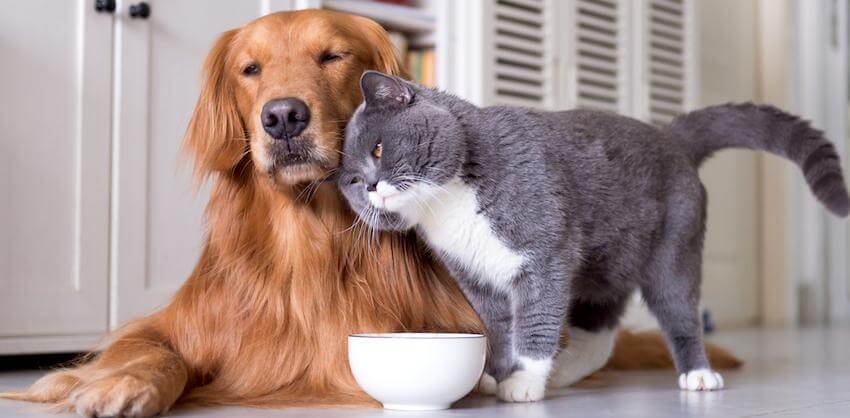Contents
As our furry companions grow older, their needs change. Senior dogs and cats may develop health issues that weren’t present during their younger years. While aging is a natural part of life, regular care and early intervention can help your pet enjoy their golden years to the fullest.
At Kainer Veterinary Hospital, we specialize in providing compassionate care tailored to senior pets. Let’s explore common health issues in senior dogs and cats, how to recognize them, and the steps you can take to keep your older pets happy and healthy.
Understanding When Your Pet Becomes a Senior
The definition of a “senior” pet varies depending on size, breed, and species. In general:
- Small-breed dogs are considered seniors around 10-12 years old.
- Large-breed dogs reach senior status at 7-8 years old.
- Cats typically enter their senior years around 10 years of age.
Knowing when your pet enters this stage of life is the first step in providing them with the specialized care they need.
Common Health Issues in Senior Pets
Senior pets are more prone to certain health conditions. Understanding these issues can help you spot early warning signs and seek timely veterinary care.
1. Arthritis and Joint Problems
Arthritis is one of the most common conditions affecting senior dogs and cats. Over time, the cartilage in their joints wears down, leading to stiffness, pain, and difficulty moving.
- Symptoms: Limping, reluctance to climb stairs or jump, and difficulty getting up.
- Treatment Options: At Kainer Veterinary Hospital, we offer cold laser therapy and veterinary orthopedic manipulation to relieve pain and improve mobility.
2. Dental Disease
Dental problems, such as gum disease and tooth decay, are prevalent in older pets. Poor oral health can lead to infections and even affect vital organs.
- Symptoms: Bad breath, difficulty eating, drooling, or loose teeth.
- Prevention and Care: Regular dental checkups and services like dental scaling and polishing can keep your pet’s teeth healthy.
3. Obesity
As pets age, their metabolism slows down, and they may become less active, making them more prone to weight gain. Obesity can worsen arthritis, heart disease, and diabetes.
- Prevention: A tailored diet plan and regular exercise are key. Our team can guide you with pet nutrition advice to maintain a healthy weight.
4. Vision and Hearing Loss
It’s common for senior pets to experience changes in their vision and hearing. Conditions like cataracts or retinal degeneration may occur.
- Symptoms: Bumping into objects, unresponsiveness to sounds, or difficulty navigating.
- Care Tips: Regular checkups can monitor eye health and provide guidance on managing vision or hearing loss.
5. Heart Disease
Heart conditions, such as congestive heart failure, are more likely to develop in older pets.
- Symptoms: Coughing, fatigue, shortness of breath, or fainting.
- Diagnostics and Treatment: Our cardiology services include diagnostic tools like cardiac X-rays and echocardiograms for accurate assessments and tailored care.
6. Kidney Disease
Kidney disease is common in senior cats but can also affect dogs. It often progresses slowly, making regular testing essential.
- Symptoms: Increased thirst and urination, weight loss, and vomiting.
- Monitoring and Support: Routine blood tests and urinalysis can catch kidney issues early, and dietary adjustments can help manage the condition.
7. Cancer
Senior pets are at a higher risk for developing tumors, some of which can be malignant.
- Symptoms: Unusual lumps, weight loss, or changes in appetite.
- Treatment: Early detection is crucial. We provide services like tumor and mass removal to address growths safely.
How to Support Your Senior Pet’s Health
Caring for a senior pet involves regular veterinary checkups, a balanced diet, and creating a comfortable living environment. Here are a few key steps:
1. Schedule Regular Wellness Exams
Routine checkups are vital for monitoring your pet’s health as they age. At Kainer Veterinary Hospital, our preventive care services are designed to detect potential issues early.
2. Focus on Pain Management
If your senior pet shows signs of discomfort, it’s essential to address their pain. Our pain management options include medications, laser therapy, and holistic approaches like acupuncture.
3. Keep Them Active
Encourage gentle exercise to maintain muscle strength and joint mobility. Short walks, play sessions, or interactive toys can keep your pet engaged and active.
4. Adjust Their Diet
Senior pets often require diets tailored to their changing nutritional needs. Consult with our team about specialized diets to support joint health, digestion, or weight management.
5. Provide a Safe and Comfortable Environment
Make adjustments at home to accommodate your pet’s changing abilities. Provide soft bedding, ramps for easier access, and a quiet space where they can relax.
Why Choose Kainer Veterinary Hospital for Senior Pet Care?
Senior pets deserve special care, and at Kainer Veterinary Hospital, we’re committed to providing exactly that. Here’s why pet owners trust us with their aging companions:
- Experienced Team: With nearly three decades of expertise, Dr. Daniel Kainer leads a team dedicated to supporting pets at every stage of life.
- Comprehensive Services: From routine checkups to advanced diagnostics and treatments, we offer everything your senior pet needs under one roof.
- Personalized Care: We tailor our approach to suit your pet’s unique health needs, ensuring they receive the best possible care.
Schedule Your Senior Pet’s Checkup Today
Your senior pet has been by your side through thick and thin. Now it’s time to ensure they get the care they need to enjoy their later years comfortably. At Kainer Veterinary Hospital, we’re here to support you every step of the way.
Book your pet’s next wellness exam through our online booking tool or contact us for more information. Together, we can help your pet thrive in their golden years.


